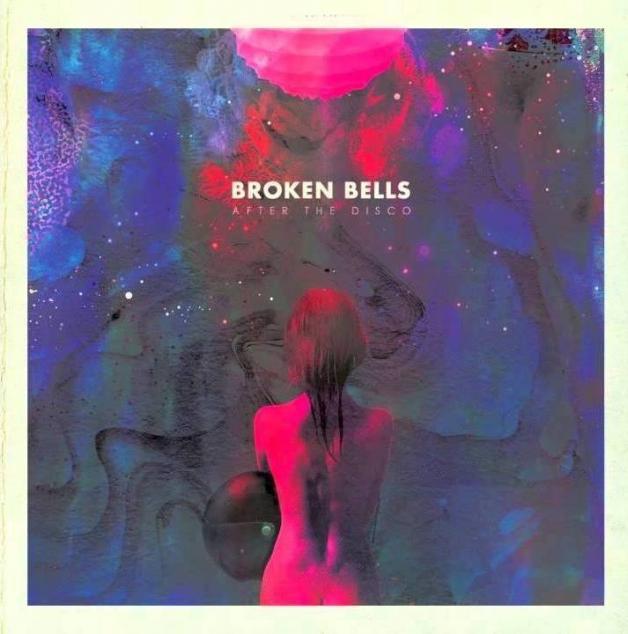When Brian Burton, otherwise known as Danger Mouse, and James Mercer, the vocalist of The Shins, first joined forces as Broken Bells in 2010, nobody quite knew what to expect. But plenty of people were curious, hence their self-titled debut popping up in the Billboard Top 10 the week of its release.
At the time, everyone assumed the Broken Bells album was a one off. A fluke, really. After all, who would have expected James Mercer of indie rock fame to collaborate with Brian Burton, who at the time was most famous for his Jay-Z and The Beatles mash-up project, The Grey Album, and his collaboration with Cee Lo Green, Gnarls Barkley? I certainly didn’t. And, to be honest, I wasn’t terribly impressed. I think much of it stemmed from my disinterest in Mercer. Sure, like the rest of the country, I’d enjoyed The Shins’ music in the movie Garden State, but beyond that they didn’t do much of anything for me. To my ears, they weren’t quite rock enough or indie enough or pop enough — they just seemed to exist in the middle of the road, playing it safely, not really taking any chances. They failed to grab a ball and run with it. Of course, I realize that most people would disagree with me here; I’m simply giving you my opinion. That being said, I was a fan of Burton’s, largely due to Gnarls Barkley and his work on the Gorillaz album Demon Days, so I found myself rather enjoying the Broken Bells album. For about five minutes anyway. It was pleasant enough, and I thought it was very well done, but it just didn’t leave a lasting impression on me. I think I listened to it five times and moved onto other things. Nothing hooked me enough to keep going back to it beyond that.
In the years since Broken Bells’ debut, and following their 2011 EP Meyrin Fields, The Shins put out an album produced by Greg Kurstin, who’s known largely for producing pop artists like Lily Allen, Little Boots and Kelly Clarkson. I’m not sure The Shins’ longtime fans appreciated what Kurstin brought to the table, but I thought it was their best album to date and I actually found myself listening to it over and over again. Meanwhile, Burton worked on several albums that I liked, my favorites being the 2012 Norah Jones album Little Broken Hearts and Electric Guest’s 2012 album Mondo. Working with Kurstin, one could say that Mercer veered somewhat into the pop direction. Meanwhile, working with Jones, whose album he also co-wrote, Burton delved deeper into, shall we say, softer fare. So, perhaps, then, it was inevitable that Mercer and Burton would come together again? I think it’s safe to assume that each had a better understanding of what the other did when they set to work on the new Broken Bells album, After The Disco, which is probably why it’s far superior to the previous Broken Bells releases.
On the first Broken Bells album, there were clearly times when the sound was Mercer’s and times when the sound was Burton’s. Not so much the case with After The Disco, which finds the duo having truly melded together, creating a wholly unique sound. Oh, Mercer’s voice remains gentle if not soothing as usual, his croon unmistakable, and the interplay between the percussion and bass guitar is classic Burton, but they just gel together so much better this time around. So much so that they may find themselves acquiring fans who have never been fond of anything either of them has done previously.
“I thought love would always find a way / But I know better now,” Mercer sings during the up-tempo but melancholic chorus of “Perfect World,” the album’s opening track and a song perfect for a movie montage wherein the main character experiences a mid-life crisis. There’s even a dip in the song where it gets rather downtrodden that would be perfect for when the mid-life crisis climaxes with a full-on nervous breakdown.
In spite of its title, “After The Disco” delivers a bass line ripe for the discotheque, even if the beats aren’t quite punchy enough for it. Still, the synthy number is sure to be a hit on your next house party playlist. You can certainly dance to it — it’s just not that kind of house music.
https://soundcloud.com/brokenbellsmusic/after-the-disco
The album’s biggest smash is its highly addictive first single, “Holding On For Life,” which finds Mercer taking his falsetto to brave new heights, particularly during the moody chorus, the best thing the BeeGees never sang. You’d swear it’s straight off the Saturday Night Fever soundtrack. It’s like the BeeGees as remixed by Hot Chip.
In terms of its gloomy melody and the bummed out lyrics, “Medicine” sounds like a stripped back Queens of the Stone Age number. “This ordinary room is turning into something of a prison hole / And the only thing we know for certain is that don’t nobody know,” Mercer sings, sounding a bit dispirited.
The duo shifts into Duran Duran territory with infectious results on “No Matter What You’re Told,” which packs short, stabbing, bursts of horns that call to mind “Union of the Snake.” The wistful ballad that is “The Angel And The Fool” is like The Shins as remixed by Portishead. Fans of Burton’s work with Gorillaz will be especially fond of the bouncy tune that is “The Changing Lights.”
I’m sure just about every review will say this, but it must be said: After The Disco is the perfect album to listen to after a night out, when you’re back at your place and don’t quite want to chill just yet and want music that’s invigorating but not pounding away at your skull like EDM you just heard at the clubs.


Leave a Reply